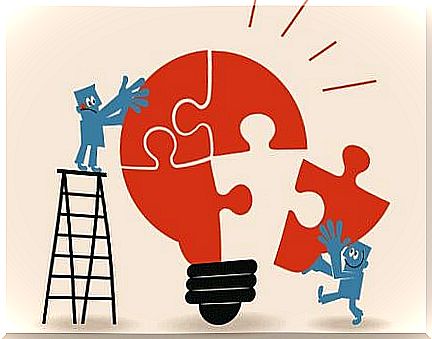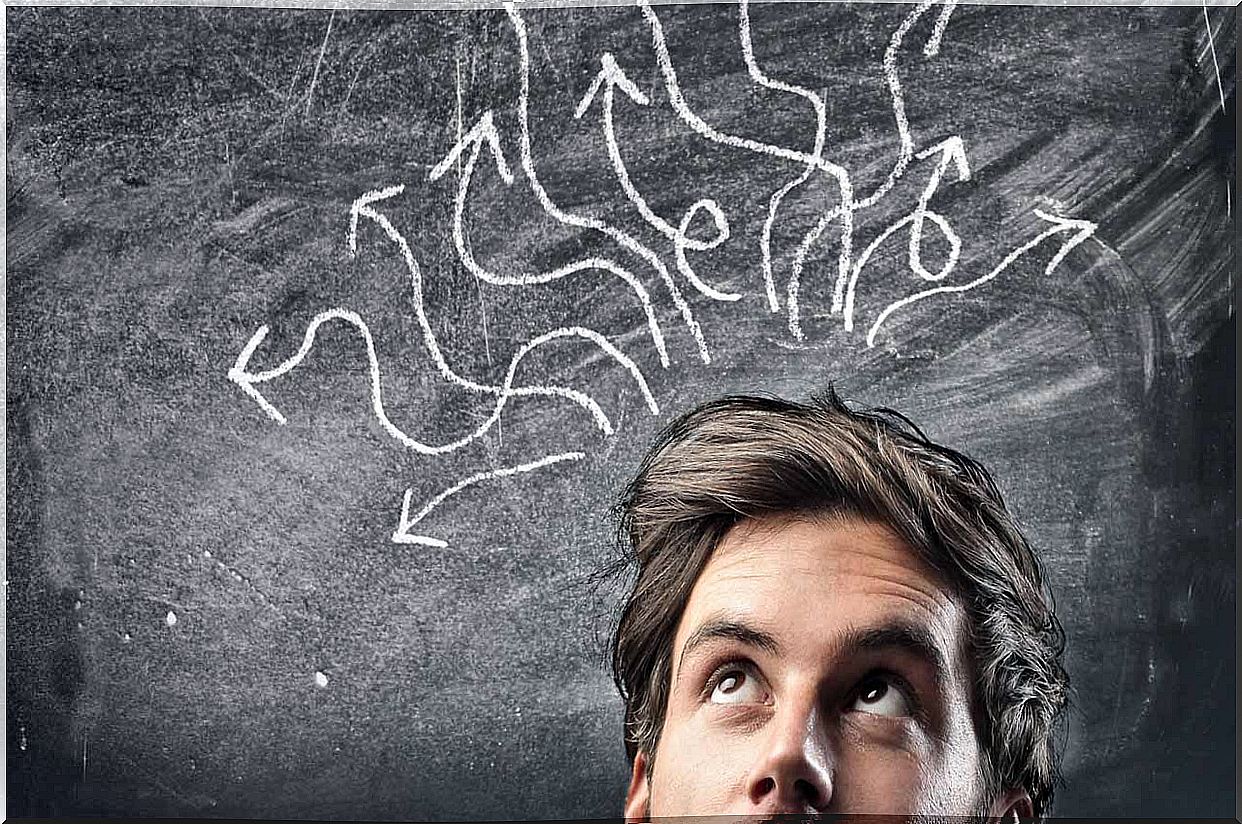8 Basic Psychological Processes

Behavior is a means of working the world around us. This allows us to adapt our environment and our reality to what is happening in our lives. We know that our behavior is mediated by internal mental processes. But what do these basic psychological processes consist of?
The 8 psychological basic processes
The 8 psychological basic processes consist of:
- Perception
- learning ability
- language comprehension
- Train of thought
- Attention
- Memory
- Motivation
- Emotion
Let’s take a closer look at each of these individual processes. Keep in mind that despite being terminologically independent, many could not exist without the others. So see this distinction as an artificial classification that makes scientific work possible.
Perception
Perception is responsible for the “image” we have of the world around us. It allows us to process the information that external stimuli give us through our senses.
In addition, it is responsible for sensory integration. This includes organizing and assigning meaning to all the stimuli we observe. The function of this is obvious: in this way we get to know our environment. That, in turn, allows us to move fluently in this and — as it were — to play with it. These are necessary basic abilities to be able to adapt our environment to our needs.
learning ability
This is how we learn and adapt knowledge, abilities, behavior, and so on. It is often a way we internalize and make our own something from the past. Learning also helps us think about our behaviors and how they relate to consequences. Hence, our ability to learn is also in some sense associated with our memory.

The field of research on learning behavior mainly belongs to behaviorism. This is a movement within the philosophy of science that is often applied within psychology. It is, in fact, where theories of classical and instrumental conditioning come from, explaining how we can learn.
Of course, this part of the basic psychological processes comes in handy because it adapts our behavioral repertoire. This is how we learn from the past. For example, you will quickly make the same mistake more than once or twice. This allows us to respond appropriately to similar situations in the present and in the future.
language comprehension
Man is a social animal. That’s why language is such an incredibly important part of basic psychological processes. It allows us to communicate with others. Of course this can also be done through body language, but spoken words play a major role within our perception. This form of communication, in the case of humans, thus takes place through a complex, symbolic code. This is what we call “language”. The complexity of our language allows us to describe almost everything with great precision. It does not matter whether it concerns something in the past, the present or the future.
The mesh of this process stems from our need to form complex, social relationships. These helped our ancestors survive in hostile environments. Language thus offers us a form of communication that is so broad that entire societies have been built around it.
Train of thought
This is a complex process described in psychology as: “The process responsible for transforming information in order to organize it and give it meaning.” The study of thought began with Aristotle, a Greek philosopher and scientist. His analyzes were very extensive and covered areas of expertise such as psychology, philosophy and religion. Even contemporary practices, such as empiricism (observation as a source of knowledge), can be traced back to him. While many of his methods ultimately proved ineffective, many have served us for years to come.
Reasoning is a quick but somewhat imprecise process that allows us to deal effectively with our environment .
The function of the train of thought is a controversial topic. That’s partly because the existing terminology of this is confusing. The most acceptable definition is that the train of thought serves as a kind of control mechanism. It helps us organize our perceptions so that we can interpret them.

Attention
Attention means that you focus all your available senses on a particular stimulus. The rest is ignored here. We receive at all times a large number of stimuli that we cannot all perceive at the same time. Attention plays a major role in this.
Attention is one of the most adaptable basic psychological processes. If not, we would be continuously overwhelmed by both internal and external stimuli. We wouldn’t know what to respond to first. It may feel contradictory that the cognitive boundary we thus draw ourselves is actually an evolutionary adaptation. Yet it is so!
Memory
Our memory allows us to encode information for storage and future retrieval. This is an essential part of the basic psychological processes and is closely related to all others.
Our memory allows us to remember all kinds of things, both explicit (consciously recallable, like the capital of France) and implicit (unconsciously recallable, like how to cycle). Memory exists because it is of course very useful to have information about past events at our disposal. In this way we can guess about the future and act accordingly. Without our memory, all other basic psychological processes could not even exist. After all, they are each strongly supported by memory.
Motivation
Motivation is our driving force. It provides the body with the necessary cognitive resources to perform a particular action. Furthermore, it is responsible for activating the body and ensuring that it is in an optimal state. Another important part of motivation is direction. It thus not only prepares the body, but also directs our behavior towards certain intended results.
The function of motivation is to make the individual direct his behavior towards their goals. That way, such an individual does not stand still for too long. This process, in turn, is closely linked to emotion and learning.

Emotion
Emotions are responses to external stimuli. They guide our behavior and often crop up quickly. Emotions consist of three parts:
- Somatics: the physical changes that emotions bring about;
- Behavior: the actions that trigger emotions;
- Feeling: the personal experience of the emotion.
Emotion directs our behavior in a quick, effective way. Most of the choices we make on an average day are not important enough for us to spend a lot of time on. That’s where our emotions emerge. It is important to understand that every choice we make is influenced to some degree by our emotions.
In this article we have treated the 8 basic psychological processes in a very superficial way. All these processes are in fact the subjects of many in-depth investigations. As a result, the topics are also much more detailed than we can discuss here. The intensive investigations into each of these basic psychological processes give us the simple information we need to understand human behavior and mental processes.









